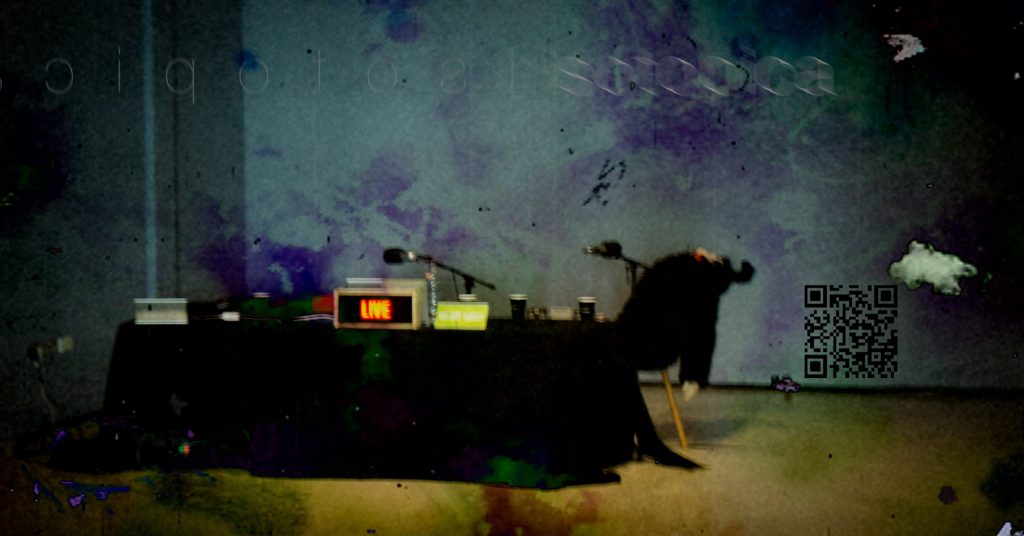A play on words
Zoe Zarkovsi and Simon Tyszko engage in Word play or wordplay (also: play-on-words) being a literary technique and a form of wit in which words used become the main subject of the work, primarily for the purpose of intended effect or amusement. Examples of word play include puns, phonetic mix-ups such as spoonerisms, obscure words and meanings, clever rhetorical excursions, oddly formed sentences, double entendres, and telling character names (such as in the play The Importance of Being Earnest, Ernest being a given name that sounds exactly like the adjective earnest). Word play is quite common in oral cultures as a method of reinforcing meaning. Examples of text-based (orthographic) word play are found in languages with or without alphabet-based scripts; for example, see homophoerate our accompanying nic puns in Mandarin Chinese. Deleuze and food, time and chance, combine with a collection of pure data patches that algorithmically generate our accompanying soundtrack, the hidden hand of a god who simply never existed.
Le menu est la liste des divers mets qui composent le repas. Dans un restaurant, ou à la cantine, c’est l’ensemble des mets qui peuvent être servis pour un prix déterminé.
Par métonymie, le menu est le feuillet, le carton, le tableau, l’affichette, l’objet ou la brochure qui liste :
- les mets servis lors d’un repas : manuscrit ou imprimé, illustré ou non, il présente au convive la liste des mets et boissons qui vont lui être servis lors d’un repas ou d’un banquet. Cette pratique, qui remonte au xixe siècle, et qui tend à se perdre (sauf dans les réceptions officielles), participe à l’art de la table ; elle offre de précieux renseignements aux historiens de la cuisine ;
- le choix des différents mets pouvant être servi pour un repas au restaurant.


